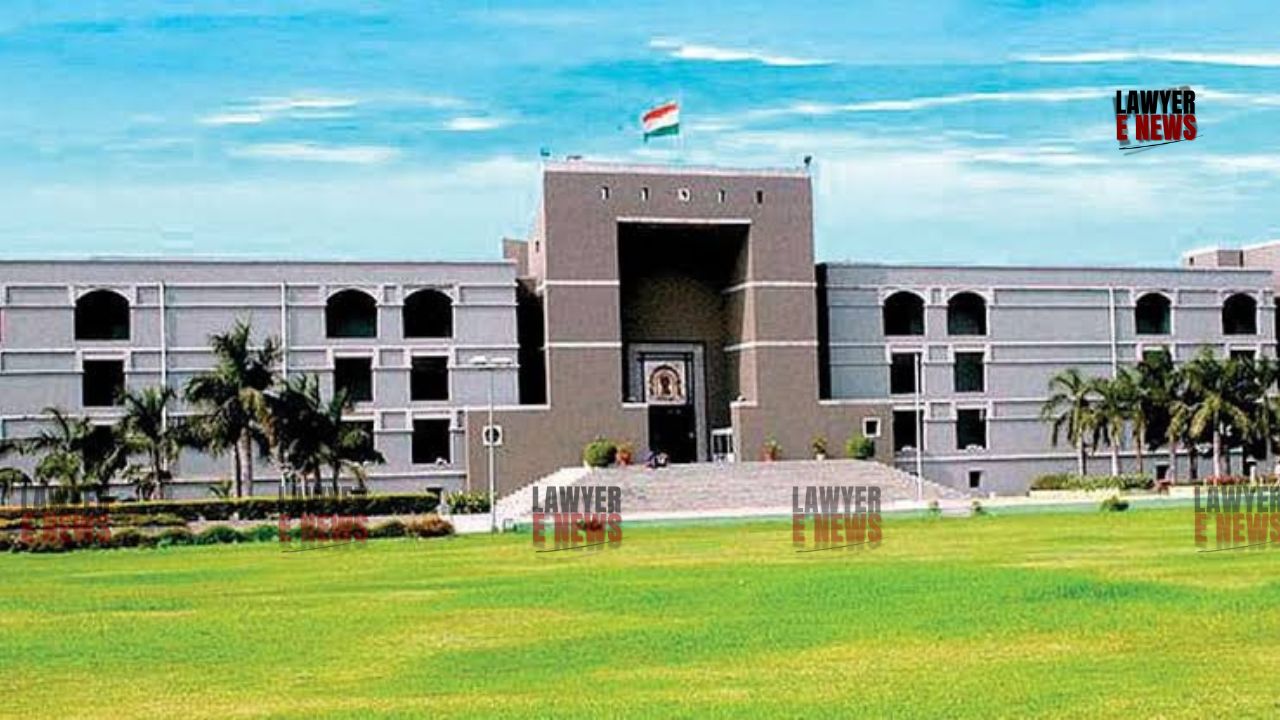-
by Admin
15 February 2026 5:35 AM



Gujarat High Court ruled that the six-month limitation period introduced under Section 166(3) of the Motor Vehicle Act, 1988 (as amended in 2019), does not bar a victim’s right to seek compensation. The Court upheld the Motor Accident Claims Tribunal’s (MACT) decision to condone a nine-day delay in filing a claim petition and held that procedural fairness and statutory duties imposed under the Act must ensure justice for victims.
Justice J. C. Doshi observed, “In the absence of an explicit exclusion of the Limitation Act in the Motor Vehicle Act, the provisions of the Limitation Act, 1963, remain applicable. Denying compensation based on technicalities would defeat the benevolent purpose of the legislation.”
“Duty of Police and Insurers to Facilitate Compensation Process is Statutory”: Gujarat HC Highlights Obligations Under Sections 149 and 159
The Gujarat High Court strongly emphasized the mandatory obligations of police officers and insurance companies under Sections 149 and 159 of the Motor Vehicle Act. Justice Doshi remarked, “Police officers must file accident reports promptly and forward them to the Claims Tribunal under Section 159. Similarly, insurance companies are bound under Section 149 to proactively assess and offer compensation without waiting for formal claims. These provisions ensure that victims do not suffer delays in receiving justice.”
The Court highlighted that the procedural framework under the Motor Vehicle Act mandates the filing of Accident Information Reports (AIRs), Interim Accident Reports (IARs), and Detailed Accident Reports (DARs) by police, which must be treated as claim petitions by the Claims Tribunal under Section 166(4).
“Tribunal Must Treat Accident Reports as Claim Applications Under Section 166(4)”
The judgment clarified the statutory duty of Claims Tribunals to treat reports forwarded by police under Section 159 as claim applications under Section 166(4). Justice Doshi stated, “Any report forwarded under Section 159 shall be treated as an application for compensation. This ensures that victims or their families are not denied compensation due to procedural lapses.”
Citing the Supreme Court’s decision in Jai Prakash v. National Insurance Company (2010), the Court reiterated that tribunals are duty-bound to automatically register reports as claims to protect the victim’s rights.
The case arose when Bajaj Allianz General Insurance Co. Ltd. challenged the MACT’s decision to condone a nine-day delay in filing a claim petition under Section 166. The insurance company argued that Section 166(3), which introduced a six-month limitation period, barred the claim, and the Limitation Act was inapplicable. However, the Gujarat High Court dismissed the petition, holding that the benevolent nature of the Motor Vehicle Act required a liberal interpretation of its provisions.
The Court also noted that the accident involved minor dependents of the deceased victim, invoking Sections 6 and 7 of the Limitation Act, which extend the limitation period in cases involving legal disabilities.
The accident occurred on April 26, 2022, resulting in the death of Kamlaben Khadiya. Her legal heirs, including minor children, filed a claim petition under Section 166 of the Motor Vehicle Act. However, the petition was delayed by nine days beyond the six-month limitation period.
The MACT at Dahod condoned the delay, which was challenged by the insurance company. The petitioner argued that the statutory limitation under Section 166(3) was a strict bar and that the Limitation Act could not be invoked to condone the delay.
The Court rejected the petitioner’s contention, observing that Section 166(3) does not expressly exclude the application of the Limitation Act. Justice Doshi cited Section 29(2) of the Limitation Act, which mandates that the exclusion of its provisions must be explicit in special laws. He remarked, “In the absence of specific exclusion, it would be incorrect to hold that the provisions of the Limitation Act are not applicable. The right to compensation cannot be defeated merely on technical grounds.”
The judgment further emphasized that delay in filing claims should be liberally condoned, especially given the remedial and victim-centric nature of the Motor Vehicle Act. “The legislative intent of the Motor Vehicle Act is to provide expeditious relief to accident victims, not to deprive them of their rightful compensation through procedural strictness,” the Court observed.
Justice Doshi underscored the statutory obligations imposed on police officers and insurers under Sections 149 and 159. The Court referred to the Supreme Court’s decision in Gohar Mohammed v. Uttar Pradesh Road Transport Corporation (2022), stating, “The police are under a statutory duty to promptly file accident reports, and insurers must proactively offer compensation based on these reports. These provisions ensure that victims are not burdened with the procedural hurdles of initiating claims.”
The Court also noted that Sections 149 and 159 are designed to simplify the compensation process. “These provisions reflect the legislature’s intent to ease the procedural burdens on victims and ensure timely relief,” the Court held.
The Court invoked Sections 6 and 7 of the Limitation Act to address the rights of minor claimants. Justice Doshi remarked, “In cases involving minors, the limitation period extends until the legal disability ceases. This ensures that vulnerable dependents of accident victims are not prejudiced by procedural limitations.”
The Gujarat High Court dismissed the insurance company’s petition and upheld the MACT’s decision to condone the delay in filing the claim petition. Justice Doshi concluded, “The Motor Vehicle Act is a benevolent legislation aimed at providing relief to victims. A liberal interpretation is essential to harmonize its provisions and achieve the legislative intent of expeditious and just compensation.”
Date of Decision: January 2, 2025
